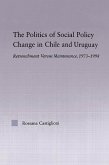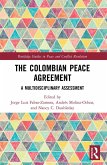This is a comprehensive analysis of three decades of neoliberal policies in Chile, from the Pinochet dictatorship until today.
Chile is often described as a 'model' of neoliberal development policy. Marcus Taylor questions this description. Examining the contradictions of neoliberlism, he demonstrates how it has created a society that is deeply ridden with inequalities.
Taylor shows how the tensions that arose from this social inequality led to the emergence of a 'Third Way' neoliberalism in the post-dictatorship period. Taylor argues that this new development paradigm has failed. This is a result of the inability of 'Third Way' neoliberalism to transform social relationships and institutions.
The nature of this failure affects the direction of popular movements for social change in Latin America during a time of renewed social and political upheaval.
Chile is often described as a 'model' of neoliberal development policy. Marcus Taylor questions this description. Examining the contradictions of neoliberlism, he demonstrates how it has created a society that is deeply ridden with inequalities.
Taylor shows how the tensions that arose from this social inequality led to the emergence of a 'Third Way' neoliberalism in the post-dictatorship period. Taylor argues that this new development paradigm has failed. This is a result of the inability of 'Third Way' neoliberalism to transform social relationships and institutions.
The nature of this failure affects the direction of popular movements for social change in Latin America during a time of renewed social and political upheaval.
Dieser Download kann aus rechtlichen Gründen nur mit Rechnungsadresse in A, D ausgeliefert werden.









